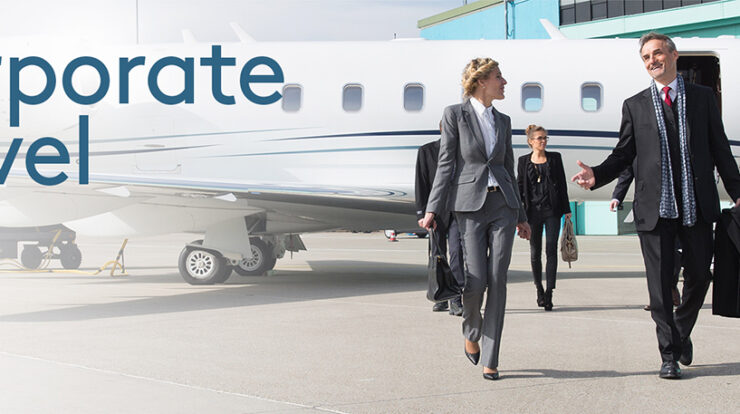
We’ll start this article by explaining what a business travel policy is and what it may accomplish for your firm. Then we’ll dive into some important topics and resources, such as best practises for writing a travel policy, tips for creating a customizable corporate travel policy template, how to achieve near-complete travel policy compliance, how to manage trip approval using technology, and even how to automate the business travel booking process.
What exactly is a travel policy?
A travel policy is simply a company’s policies and processes for how its workers should authorise, arrange, and expense business travel. Corporate travel policies are usually made by the Finance Manager and the Travel Manager. They say things like whether or not an employee can fly business class, how many weeks or business days in advance they should book their trips, and if there are any precautions employees must take when travelling alone.
- A thorough travel policy should cover both trips abroad and trips within the country, and it should include information on:
- Booking an authorised business travel company
- Allowable Booking Costs (hotels, airfare, ground transportation)
- Special regulations or exclusions for more costly places or routes
- preferred business vendors.
- process for approving excursions that exceed customary restrictions.
- The reimbursement procedure
- Expenses that are and are not authorised
- The travel debriefing procedure
- Providers of travel insurance
- Vendor’s duty of care or processes
Clearly, a travel policy is more than just the booking and associated costs. It also manages all of your travel plans and has an impact on staff across several departments.
Why do you need a business travel policy?
Clear norms imply equality for all.
Travel policies are more than just a set of restrictions. They should not cause annoyance or eye rolls. Instead, travel rules may benefit both individuals and enterprises. Here’s how it’s done:
Travelers’ Advantages
- Flexibility and authority to book their own trip within predetermined parameters
- First and foremost, safety! (Travelers’ movements are monitored.)
- Reduce the complexity and stress of travel booking.
Advantages for the firm:
- Reduce spikes in travel spending and regain control.
- Reduce the friction and annoyance associated with costs and reimbursements.
- Reduce total business travel expenditures and optimise your company’s budget.
- Improve justice and cultivate a pleasant company culture.
What should a company’s travel policy include?
How your company travels, who travels, and why they travel will all have an impact on your firm’s travel policy. However, some elements must be included in each company’s policy.
It is critical to specify your authorised booking procedure and tools. Do you want your passengers to book through a single business travel platform so that you can consolidate your spending? Do you want passengers to book their own trips according to policy, or do you want them to send a travel request to an office manager who plans all trips?
Your policy should also explicitly state what items may and cannot be expensed, so that your passengers do not mistakenly purchase anything for which they will not receive travel reimbursement or charge superfluous charges to their business card. In your policy, you must clearly define business costs like entertainment, business dinners, and event registration fees.
Also Check: Which Best Proxy Type is the Best for Travel Fare Aggregation?
Hotel policy rules
Incorporate your company’s hotel policy guidelines and accommodation charges into your business travel policy as well. Every firm has distinct restrictions about accommodation under their corporate lodging policy, so it’s critical to spell them out beforehand.
In terms of hotel expenditures, it is typical for corporations to establish a maximum hotel star rating or nightly rate that workers are not permitted to exceed. Employees are also sometimes obliged to remain in ordinary hotel rooms, with ‘deluxe’ suites or rooms off-limits.
Second, make it clear which incidentals can be paid. These can include everything from room service and dry cleaning/laundry services to valet parking and hotel amenities (gym, swimming pool, sauna, etc.).
Keep in mind that hotel costs are affected by both seasonal swings and geography, so you’ll need to be aware of any differences based on the time of year and the location of your employees. As a result, many firms prefer to collaborate with certain suppliers, negotiate travel packages, and force their staff to use these providers whenever feasible.
Policy rules for travel and entertainment
You should also include a section on best practises for travel and entertainment. This should contain restrictions and limits on what employees can buy for amusement while travelling.
Travel and entertainment guidelines should include the following:
- Spending caps on meal expenditures (either on a per meal or per day basis)
- Rules governing what staff are permitted to do when entertaining clients (meals, alcoholic beverages, etc.)
- Clear guidelines on when alcohol may and cannot be expensed, as well as a maximum amount that can be spent on alcohol per person,
- list of personal costs that are not authorised, such as laundry services, mini-bar charges, and personal phone calls.
- Instructions on information, original receipts, and other paperwork necessary for refund processing
The travel policy is also an excellent location for your expenditure reimbursement procedure. This gives passengers an incentive to look into the policy. You should also specify who is the ultimate approver for these charges and the best method to pay for them (do you give travel advances? Should passengers use their own debit or credit cards for these payments?
Finally (but definitely not least), you must provide all of the safety information that passengers require. What should they do if an emergency arises while they are away? Who should people call in the event of various sorts of emergencies? What kind of insurance do they have?
See our business travel policy template and section on how to draught a policy for additional information on all of the above.
Employee air travel policy guidelines
Developing an easy-to-implement air travel policy for workers is critical to keeping your staff safe and your company’s travel expenses as low as feasible.
Most importantly, your company’s air travel policy should include documentation that employees can use to ensure their bookings are compliant; detailed information on what information is required to submit travel expense forms; a list of approved in-flight purchases; and, if applicable, a list of your company’s preferred airlines.
Business class vs. economy class tickets and the limitations on using corporate frequent flyer points for personal use are two of the most frequently asked questions about air travel policies.We go through both of these questions in further depth below to help you develop the most useful and transparent air travel policy for staff.
Booking Procedures for Business Class
An important component to mention is your corporate travel policy for business class tickets. Whether workers are not allowed to make business class reservations under all circumstances, or whether there are particular cases when they may, the restrictions must be made clear from the start.
Although they are normally less expensive than coach class flights, there are some situations when business class bookings make sense. In their corporate travel policies, many companies, for example, say that business class tickets are allowed if a part of the trip takes longer than a certain number of hours (common benchmarks are between six and ten hours).
This sort of regulation enables businesses to provide their employees with comfort and flexibility during long-distance business travel, and it may have a positive influence on traveller satisfaction—an essential travel management KPI to keep in mind.
You could also include a part where employees are able to use business class tickets when they are less expensive than economy fares. For example, once expenditures such as luggage fees and in-flight meals are deducted, economy class reservations may be more expensive than business class.
Employees may also be able to make business class reservations when they need to book last-minute travel and there are no seats left in economy class.
Remember, if there are no circumstances in which employees are allowed to book business class flights, make that clear in your company’s travel policy so that getting a refund won’t be hard.
How to Use Business Frequent Flyer Miles for Personal Use
Your workers accumulate frequent flyer points when they travel. There is no worldwide corporate standard governing whether the corporation or the employee retains the frequent flyer points. As a result, it’s critical to include a section on using corporate frequent flyer points for personal purposes.
Some companies recognise that it is the employee, not the company, who travels, and that employees should thus be allowed to keep their frequent flyer points.Others argue that frequent flyer miles should belong to the airline and be used to cut expenses by saving the miles for future journeys.
To minimise misunderstanding, firms should specify explicit regulations surrounding workers’ utilising corporate frequent flyer miles for personal purposes, as there is no universal standard. For example, you may wish to enable employees to utilise frequent flyer miles but restrict them from using higher class tickets to gain more points. Similarly, you may state unequivocally that they must always go on the least expensive airline, not the airline with which they have a frequent flier connection.
You should also specify how employees should track and store their mileage in this area. Employees may quickly add and store individual airline loyalty programme numbers to each employee traveller account using TravelPerk, and we’ll also check which of their travel rewards programmes apply when they search for new trips.
Common issues with travel policies
You probably don’t want your travel policy to gather actual or virtual dust. Unfortunately, far too many do. Here are some of the most prevalent issues with travel policy paperwork.
- Travel regulations are tough to grasp.
- Nobody reads or remembers them.
- Technology is not used to enforce travel regulations.
- Travel regulations appear unnecessarily bureaucratic.
How to Market Your Corporate Travel Policy
It’s simple: If you want your staff to comply with your company’s travel policy, you need to convey the policy properly.
Burying your business travel policy under another policy document is nearly as bad as requesting unlawful trip reservations and erroneous expense report submissions. How well you market and explain the policy to business travellers will determine how well your staff will follow it.
Here are some tips to help you explain your business travel policy to your employees better and get them to follow it more often.
Make your business travel policy transparent and easily accessible
For starters, if employees can’t quickly access your company’s travel policy paper, they’ll continue to make trip arrangements without consulting it. The first step is to make sure that employees can get to the document easily through your HR or employee site.
The second stage is to ensure that the policy is brief and easy to understand. Avoid using too much jargon or legalese, and clarify the travel guidelines plainly. Consider splitting the policy into sections based on the functions of the employees.
Finally, consider developing a checklist that staff may use to mark off each stage of the booking or expenditure reporting process as they go.
Make an extensive FAQ
Even the most brief and well-written travel policy will not address every conceivable scenario or query an employee may have. Furthermore, any modifications to your travel policy will need to be incorporated.
If you find yourself answering the same set of questions often, or if you’ve been asked a question that you believe others may have as well, consider building a FAQ so that travellers can easily access solutions.
Encourage employees to provide comments
The most common reason for employees failing to follow your policy guidelines is that they dislike the procedure or find it too difficult.
Not only does asking for feedback on the booking and spending process show that you care about your employees’ experiences, but it also lets you add the best suggestions to your policy.
Travel Policy Issues in Numbers
- 64% of millennials know what their company’s travel policy is, but they still book trips outside of it.
- 72% of companies have not achieved the target level of travel policy compliance.
- 50% or more of hotel reservations violate business rules.
Some of these challenges can be resolved simply by enacting policies that better represent the interests of businesses and passengers. For example, if 50% of your trips are noncompliant, the issue may be that your typical trip budget does not reflect current travel expenses or expectations. Your business may require you to book trips at the last minute often, which is against company policy.
Aside from a practical policy, the best thing a company can do is have a policy that is actionable and implementable through technology. A wiki, word document, or PDF will not suffice.
You require a policy that is integrated into your booking technology.
How to include your policy in the reservation process
You need business trip booking technology since a piece of paper cannot influence what customers buy. Make use of a booking tool with customisable travel regulations and approval protocols. If a trip is covered by a policy, the traveller or administrator can book it this way. If this is not the case, a message is sent to the appropriate management or finance, depending on how you set up prior approval for that traveller or department.
Now that we’ve established what a travel policy is and why it’s necessary, let’s have a look at the rest of this guide. This online resource will assist you with the following aspects of business travel policy:
FAQs
What exactly is corporate travel?
Corporate travel occurs when you own or work for a firm that has workers that travel for the company. It is corporate travel if they visit on behalf of your organisation, regardless of how frequently or where they travel.
What is your main worry when it comes to arranging corporate travel?
One of the most significant issues for any travel programme is risk management, especially when your corporate travellers are travelling overseas or to far-flung places.
What are the advantages of booking business flights?
What are the advantages of using Corporate Fares? Corporate flights provide a slew of advantages, including reduced prices, a complimentary lunch and beverage, flexibility in cancellations and rescheduling, and much more.
What is the significance of corporate travel?
Reduce expenditures: One significant benefit of hiring business travel management firms is that travel costs are reduced. This covers lodging, insurance, plane tickets, and any other relevant costs. A corporate travel agent will have the knowledge and expertise required to locate and negotiate the best available offers for the organisation.





